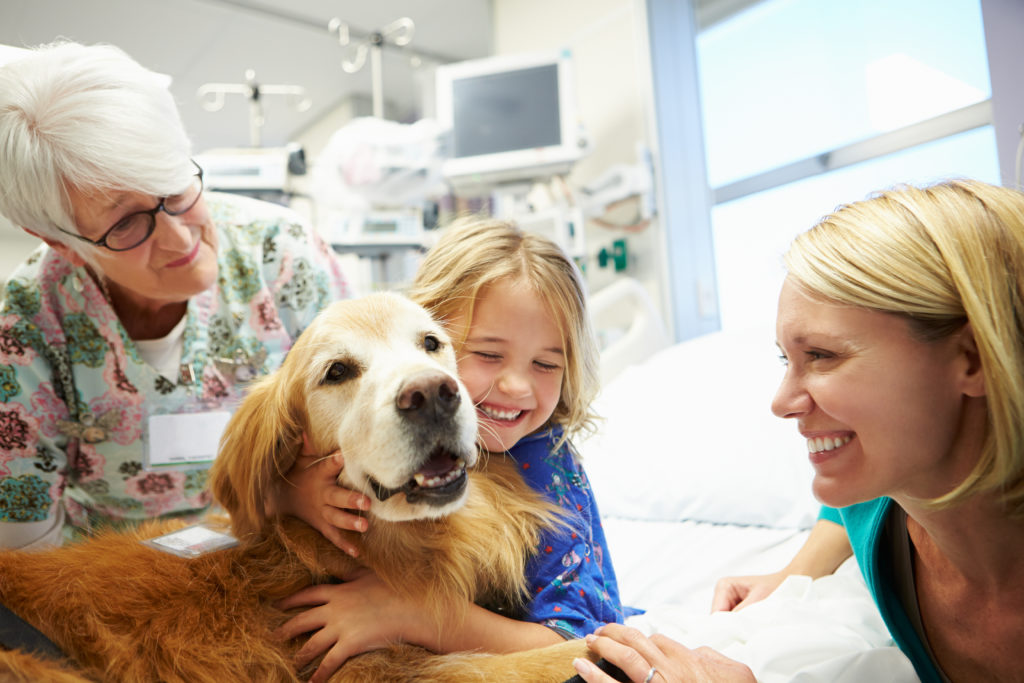Quick Hits
Daily brief research updates from the cognitive sciences

There have been lots of studies into the positive impacts of having pets around us – but this study just published looked at brain activation patterns while being with a dog, petting a dog, and with an ersatz cuddly toy lion.
The research showed that brain activation patterns were highest when petting dogs – unsurprising because this was the most interactive condition in the study. The researchers saw increased activity in the prefrontal cortex and notably in the medial prefrontal cortex which is associated with human social functions.
More surprisingly was that the cuddly toy elicited smaller responses – obvious you may think but in this study the cuddly toy was filled with a hot water bottle to be at the same temperature as a live dog and to have a similar fur texture. This was to elicit a response as close to the real thing as possible.
The response was lowest for the cuddly lion (but it did elicit a response) – possible because of the social activation as we realise it is not a live animal.
What was also interesting is that the response for petting the dog lingered on for a lot longer than any of the other conditions.
This shows that the response is not only in the moment but also has a lasting impact – that’s one reason to have pets but also an important consideration in animal assisted clinical therapy.

Andy Habermacher
Andy is author of leading brains Review, Neuroleadership, and multiple other books. He has been intensively involved in writing and research into neuroleadership and is considered one of Europe’s leading experts. He is also a well-known public speaker, speaking on the brain and human behaviour.
Andy is also a masters athlete (middle distance running) and competes regularly at international competitions (and holds a few national records in his age category).
References
Rahel Marti, Milena Petignat, Valentine L. Marcar, Jan Hattendorf, Martin Wolf, Margret Hund-Georgiadis, Karin Hediger.
Effects of contact with a dog on prefrontal brain activity: A controlled trial.
PLOS ONE, 2022; 17 (10): e0274833
DOI: 10.1371/journal.pone.0274833
More Quick Hits
How Meditation Helps Pain In Your Brain
Quick HitsDaily brief research updates from the cognitive sciences es, meditation can help with pain by changing your experience of it. I reported on that here. Another piece of research just published shows that how experienced meditators and...
When Stress Is Good For Brain Functioning
Quick HitsDaily brief research updates from the cognitive sciences tress gets a bad rap – understandably it is a negative experience and has been shown over long periods of time, and with high intensity, to cause multiple negative outcomes, from...
Put Your Smartphone Down and Let your Mind Wander – You’ll Be Happier
Quick HitsDaily brief research updates from the cognitive sciences here’s a lot been said about smartphone usage and how it can be used and abused. Most of this concern revolves around usage in children or teenagers, however, with some research...
The Amazing Impact Of Reaching Out To Your Old Friends
Quick HitsDaily brief research updates from the cognitive sciences few weeks ago a friend I hadn’t seen for about 10 years sent me a message and asked if I had time to meet up. I was elated. "Sure," I immediately messaged back, "when and where?!"...
Really? Belief In Conspiracies Not Increasing
Quick HitsDaily brief research updates from the cognitive sciences e may feel like we’re in an age of conspiracy theories, that social media is turbocharging the wild and wacky theories, and the so-called information bubbles are sending people down...
You Wake Up 100 Times Each Night – And That Helps Memory
Quick HitsDaily brief research updates from the cognitive sciences have written numerous posts and articles on sleep and the brain (review here), and the evidence is crystal clear. Good and consistent sleep is essential to all aspects of physical...






